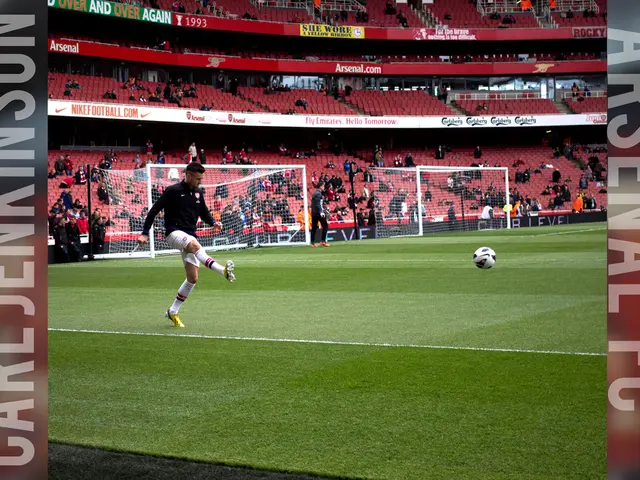Competitive Exit Polls Indicate Close Polish Presidential Election, Runoff Scheduled for June.
In a tightly contested election, centrist Warsaw Mayor Rafał Trzaskowski and nationalist rival Karol Nawrocki are set to face off in a runoff on June 1, 2025. The results, which emerged Sunday from the first round of voting, highlight Poland's deep-rooted divisions over its future and its relationship with Europe.
Exit polls conducted by Ipsos, a leading polling organization, showed Trzaskowski slightly ahead, securing 30.8% of the vote, while Nawrocki garnered 29.1%. Other exit polls revealed comparable margins, with Trzaskowski's share of the vote reaching up to 31.6%, and Nawrocki's up to 29.8%.
Neither candidate, however, secured the 50% required for an outright victory, meaning a second round is inevitable. Given the significance of the presidency—which carries the power to veto legislation and shape foreign policy—the outcome will undoubtedly influence the direction of the country.
In the crowded field of 13 candidates, neither other contender managed to gain significant ground. Sławomir Mentzen, a far-right candidate, placed a distant third with about 15% of the vote. The remaining competitors trailed far behind.
The election has effectively become a referendum on Poland's trajectory, with Trzaskowski advocating for deeper ties with the European Union, restoring judicial independence, and promoting social liberalization. In contrast, Nawrocki has pledged lower taxes, a rollback of EU environmental and migration policies, and a return to traditional values, mirroring the rhetoric of former U.S. President Donald Trump.
The campaign was marked by allegations of foreign interference, including cyberattacks on the ruling coalition and rumors of foreign-funded political ads on social media. The ongoing war in neighboring Ukraine, as well as broader European security concerns, have played a significant role in voters' considerations.
With nearly 29 million Poles eligible to vote and turnout expected to be high, election officials began counting ballots shortly after polls closed at 9 p.m. local time. Official results are expected by Monday or Tuesday.
Both candidates addressed their supporters following the release of exit polls. Trzaskowski called for unity and encouraged mobilization for the runoff, while Nawrocki framed the upcoming vote as a battle for Poland's sovereignty and traditional values.
The outcome of the presidential race will determine whether Prime Minister Donald Tusk's pro-European reforms can proceed or face continued obstruction. As the official count continues, both campaigns are already preparating their strategies for the final round.
Political analyst Anna Materska-Sosnowska notes that a Nawrocki presidency could lead to the paralysis of the government and, eventually, the collapse of the ruling coalition. Meanwhile, his success could signal a resurgence of populists in the next general election.
As attention shifts towards the candidates' strategies and planned alliances for the coming days, the outcome of this pivotal election will not only shape Poland's domestic path but also its role on the European and global stage.
- The government's future policy direction could be significantly influenced by the result of the presidential election, as the winner will have the power to veto legislation and shape foreign policy.
- The election results are expected to reflect Poland's ongoing debates about its relationship with Europe, with candidates advocating for varying degrees of integration.
- In addition to domestic politics, factors such as foreign interference, cyberattacks, and the ongoing war in Ukraine are shaping the election narrative.
- AI and environmental issues have not been prominent talking points in the election campaign, unlike taxes, judicial independence, and social liberalization.
- The space sector, though not a primary focus of the election, could potentially be impacted by the election outcomes, given the implications for foreign policy and technological development.
- The outcome of the election could have far-reaching consequences for Poland's legal framework, as alleged foreign interferences and potential violations of electoral laws could come under scrutiny once the election results are official.








